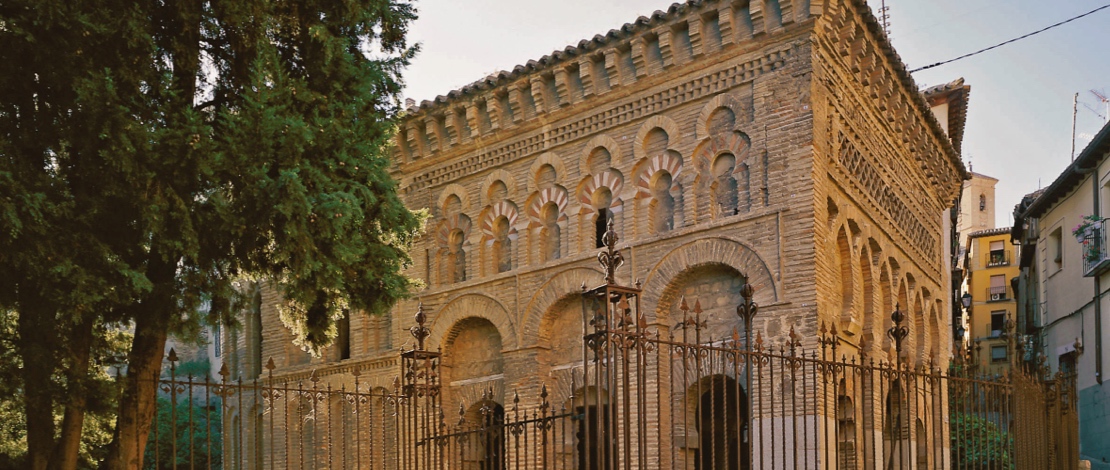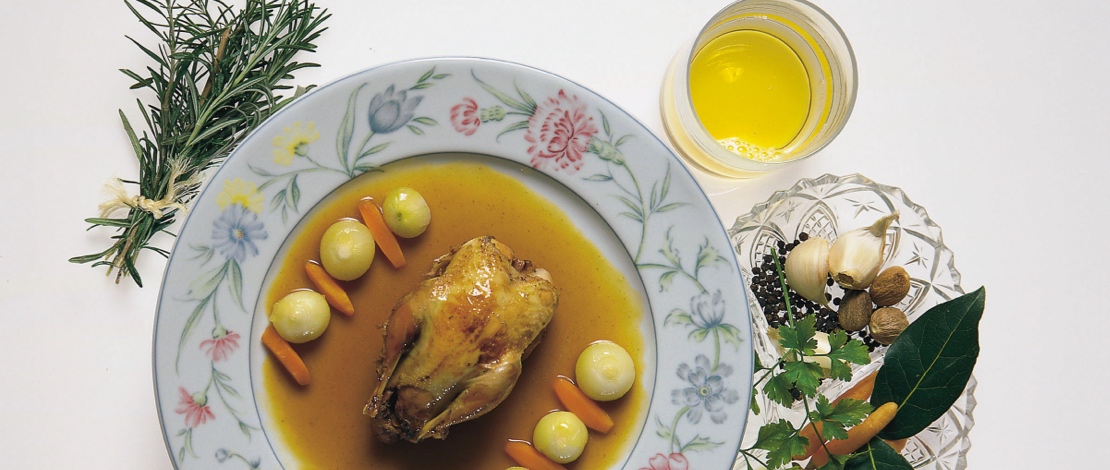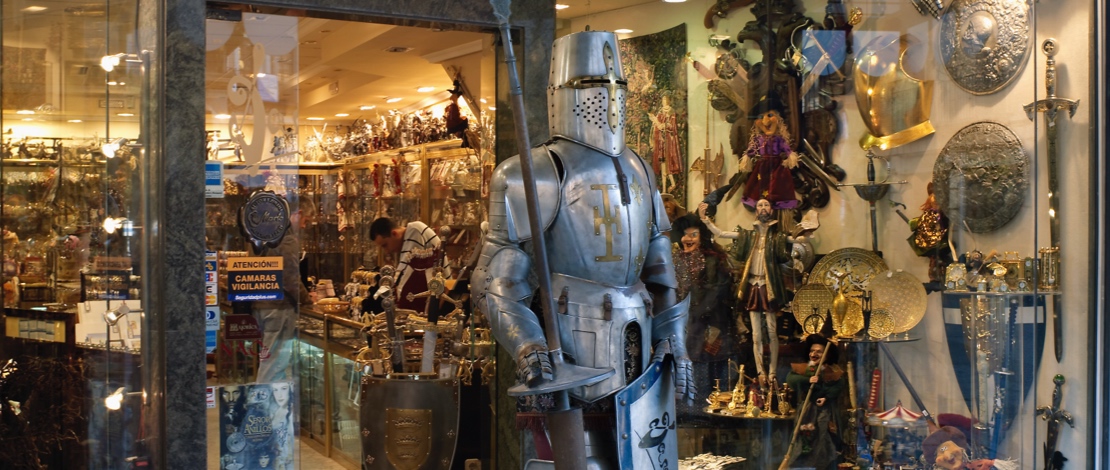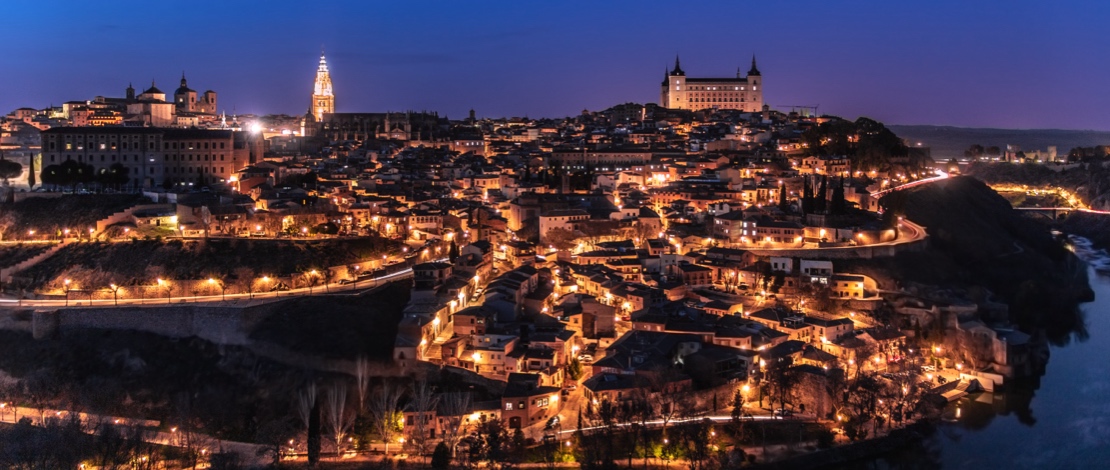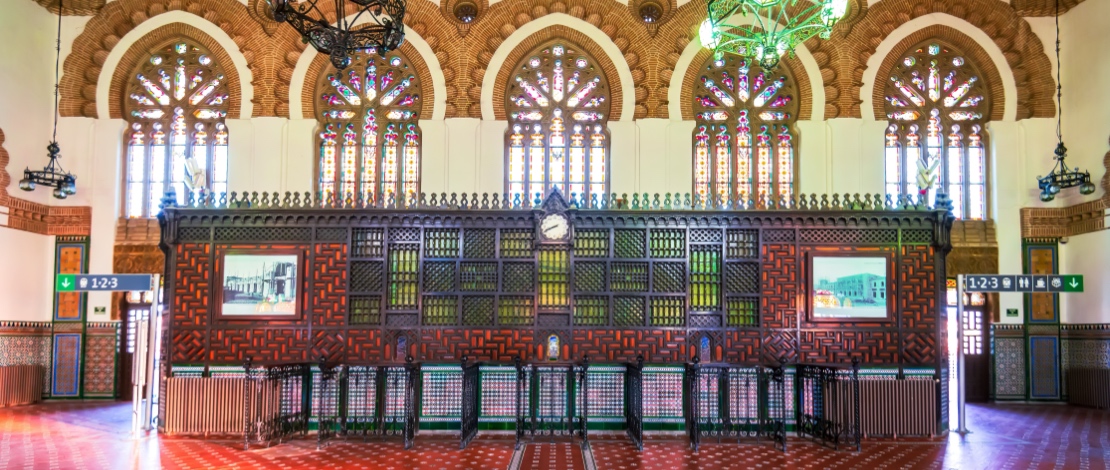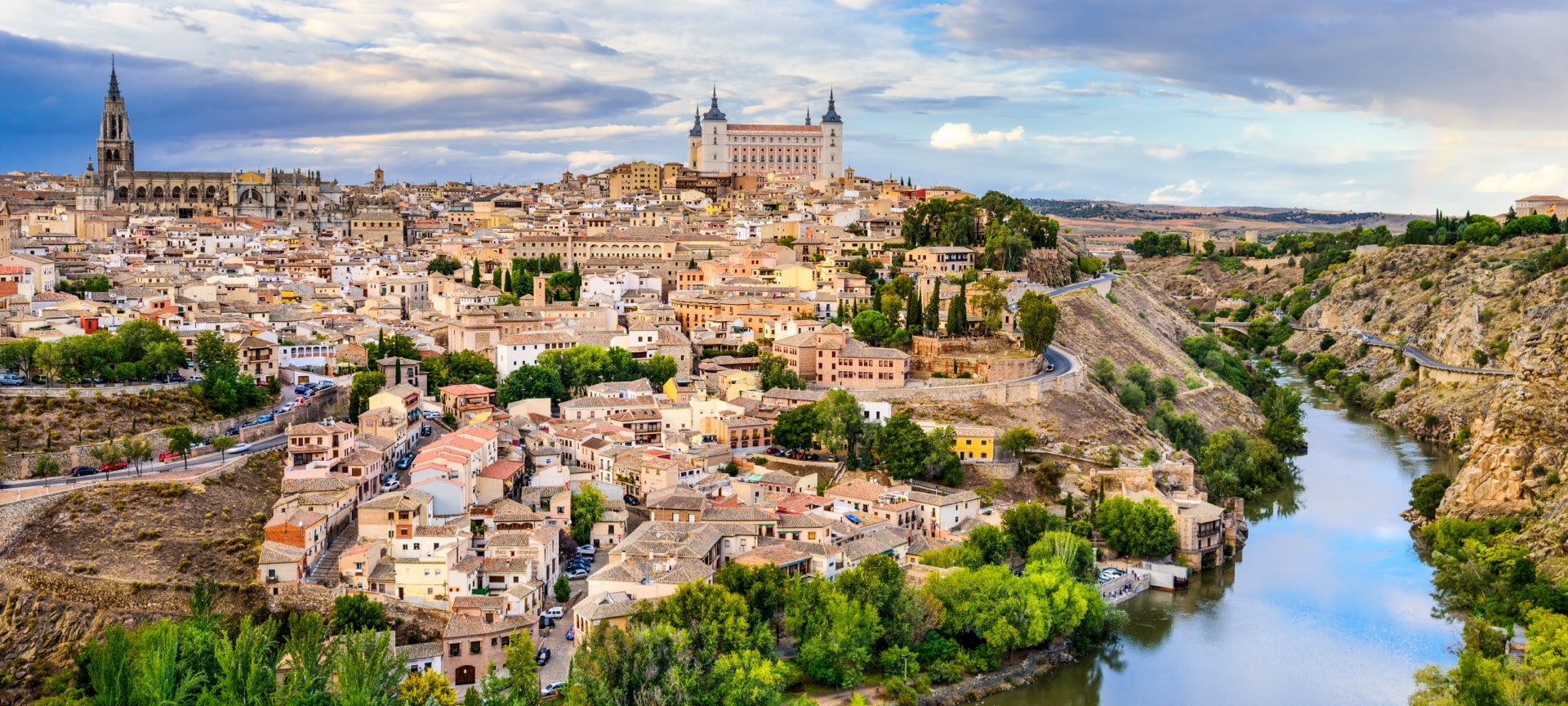
Toledo
The City of Three Cultures
The famous 'City of Three Cultures' is a must-do day trip from Madrid. Toledo was once the capital of the kingdom of Spain and is well worth a visit to see all its historic churches, synagogues and mosques, which are a reminder of how Muslims, Jews and Christians lived together in harmony here.
You will feel like a time traveller as you explore the fully preserved streets and squares of this World Heritage City.
-
MUST-SEE
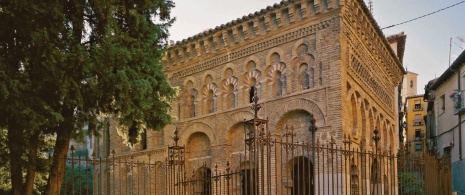
The Mosque of Cristo de la Luz or Bab al Marmum:
The best preserved example of Moorish art in Toledo.
The Mosque of El Salvador
It was built on the remains of Roman and Visigothic temples. It was a mosque until 1159, on the day of Saint John the Baptist, when it was converted into a church.
The Arab baths of Cenizal and Caballel
Preserved in the basements of 14, Calle Bajada del Colegio de Infantes, they have two rooms, the entrance room and the cold room.
The Arab baths of Tenerías
This is a set of structures dating back to the Moorish period, which were used to purify oneself before entering the Al-Dabbagin Mosque, now the Church of San Sebastián.
The Bisagra Gate
Of Muslim origin, it was built between the 9th and 10th centuries and its name derives from the Arabic word Bab-Shagra, which means "Gate of the Hinge".
The Islamic Halls of the Doncellas College
These are the remains of a typical Moorish house and the Tornerías mosque, the last one to remain in operation between 1159 and the 15th century.
The Alcázar
An impressive fortress on the highest hill in the city. It now houses the Army Museum and, throughout its history, has been the residence of widowed queens, a prison for the Crown and a silk weaving workshop, among other things.
Monastery of San Juan de los Reyes
Commissioned by Queen Isabella to commemorate a military victory.
The Cathedral of Santa María
One of the most beautiful Gothic cathedrals in Europe. It was built in the 13th century under the reign of Ferdinand III the Saint and completed in the 15th century, during the reign of the Catholic Monarchs.
City bridges
The San Martín Bridge and the Alcántara Bridge. The former is located in the western part of Toledo, over the Tagus River, and is a medieval construction. The Alcántara Bridge, also on the Tagus River, is located at the foot of the Castle of San Servando and next to the Alcántara Gate. It was built between the 2nd and 3rd centuries.
Viewpoints
From the Mirador del Valle viewpoint you can admire the Tagus River, which surrounds the city like a defensive moat. You will be rewarded with a unique photograph to take home with you as a souvenir of this magnificent city.
-
WHERE CAN I EAT?

Toledo's gastronomy is a fusion of Castilian and La Mancha cuisine. Highlights include dishes such as stewed partridge in sauce and migas, made with breadcrumbs and garlic. Manchego cheese and marzipan are some of the region's signature products. Furthermore, marzipan from Toledo, along with other handmade sweets, are an essential part of the local desserts. This culinary diversity reflects the city's rich gastronomic tradition.
You can also visit the Michelin-starred restaurant Iván Cerdeño to indulge in some of its delicacies.
-
WHAT IF I WANT TO BUY SOMETHING?
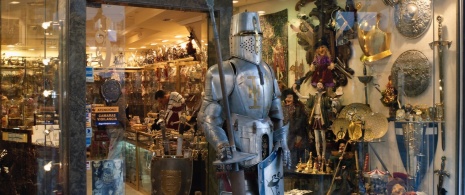
Souvenir shops: the main tourist areas around the Cathedral and the Alcázar provide elegant handicrafts such as gold and silver leaf and thread damascene, leather accessories and even steel swords, a traditional product of the city.
-
VISITING THE CITY AT NIGHT
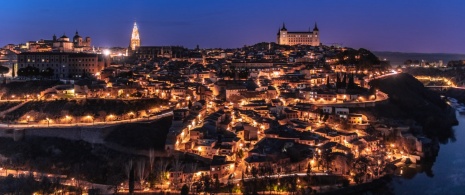
The buildings are especially beautiful when lit up at night. You can also take night-time guided tours to uncover the mysteries and legends of the city.
-
HOW DO I GET TO TOLEDO?
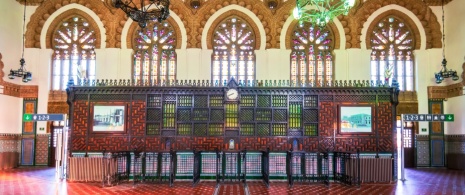
It is just over 70 kilometres from Madrid, and thanks to the high-speed trains you can get there in about half an hour.
